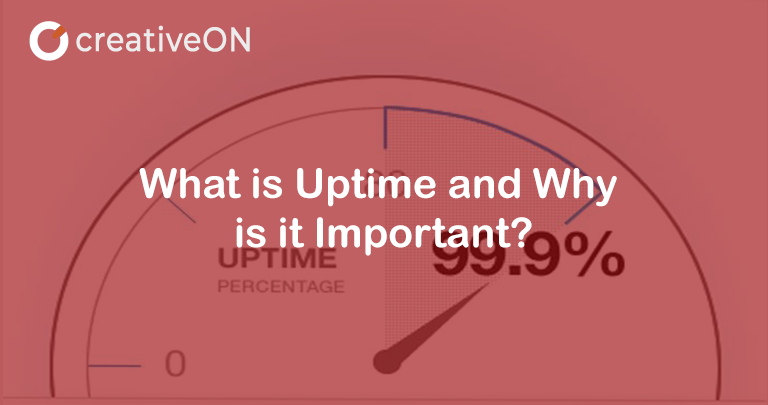Let us first understand what Uptime is. The time during which the website and its services are available to the users in a given period or the time in which the website and its hosting server are live is called Uptime. It is a very important factor because it makes you visible to the world; customers can access your website and interact with you at this time. You can have an idea from this description of how important it is and why everyone makes a huge deal out of it.
Why is Uptime important?
Although we can have a pretty good idea about the importance of Uptime from the information mentioned above, let us have a detailed look into it.
Time is Money
Every business person will agree to the fact that time is money. And time has the same value in the digital world when you are using your website to attract clients and expand your business. So, your website needs to stay live. Otherwise, it will literally shut down your whole online sales channel. Even if the shutdown is for a few seconds, it will still make you lose a significant amount of your investment along with the reputation of your brand in the eyes of your audience.
Lack of Reliability
Trust is everything. Relationships are built on reliability and trust in the digital world, where people lack physical interaction. Nothing is perfect, and everything has to go through certain ups and downs during their journey. In the same way, customers are prepared to deal with a certain downtime limit. If they have to face consistent issues with your website, their trust will eventually start to fade away.
It is said that many people leave the site and never come back if it takes too much time to load or stays down. People expect the site to stay up and running 99.95% of the time. No matter how much money and effort you are putting into your site, it will not matter if your site faces downtime.
Bad ranking in SEO
Downtime not only affects your relationship with your customers but also has a negative impact on your SEO ranking. The search engines spot poorly performing websites, and they decrease your search ranking, which means visitors would not be able to see your site among the top-ranking sites anymore. It will take a lot of time and effort to return to the top position. The opposite is also true. The search engines also notice the site with good Uptime. It will help you in improving your SEO ranking and attract more audience to your site.
Traffic spikes more often
Your site can have a sudden spike in traffic which sometimes can be predicted, say if you have launched a new sale, but sometimes it can be sudden and can cause a website’s downtime. Therefore, your website should be equipped and robust to handle these spikes. So choose your web hosting provider wisely, on which you can rely upon and who provides you with an experienced team and set of tools to combat such situations.
Off-peak Updates
Every site needs to be updated from time to time to cope with the advances in technology, fix vulnerabilities, and improve security. But not every update is fit for all. Henceforth, it is better to test your updates on a staging site first and check if it is suitable for your site or not. In case anything goes wrong, it will not harm your original site, and you can avoid such updates or codes. After everything turns out well on the staging site, apply the updates at such time that the necessary downtime occurs during off-peak hours.
Security Measures
As important as it is to secure the data of your clients, your website, and your reputation, it is equally important to save your Uptime. Cyber attackers will use multiple ways, like injecting malicious codes to overload the server with DDoS attacks. These could affect your Uptime if any of the attempts get successful. But not to worry. If you have a good hosting provider, they will be able to equip your website with modern tools and SSL Certificates to fortify your website.
Observe your Performance
By observing your website’s performance, we do not mean to keep a check on it every five minutes because you will not be able to do anything else. But having a check on the Uptime of your site is necessary. So it is advised to use a website monitoring tool to keep a check on your site’s Uptime and other activities, and you can later have a look at them. These tools will save you time so you can focus on something else to expand your business.
Choose your Hosting Provider wisely
Hosting providers are responsible for maintaining your Uptime, and this is something you cannot compromise on because your whole site’s performance depends on it. Therefore, do not fall for cheap stunts; do your research, read reviews, and ask questions before choosing your Hosting Provider. Good provider means good Uptime. So be careful. Many reliable and experienced hosting providers will provide you with an amazing supporting team and help you manage your website in the best way possible.
Uptime greatly impacts your website’s performance, meaning your whole digital sales channels as well. You cannot risk having any compromise over it. Be wise and make appropriate decisions, ensure your security and update your site at off-peak hours after testing on a staging environment. Employ monitoring tools and make the best out of them.

